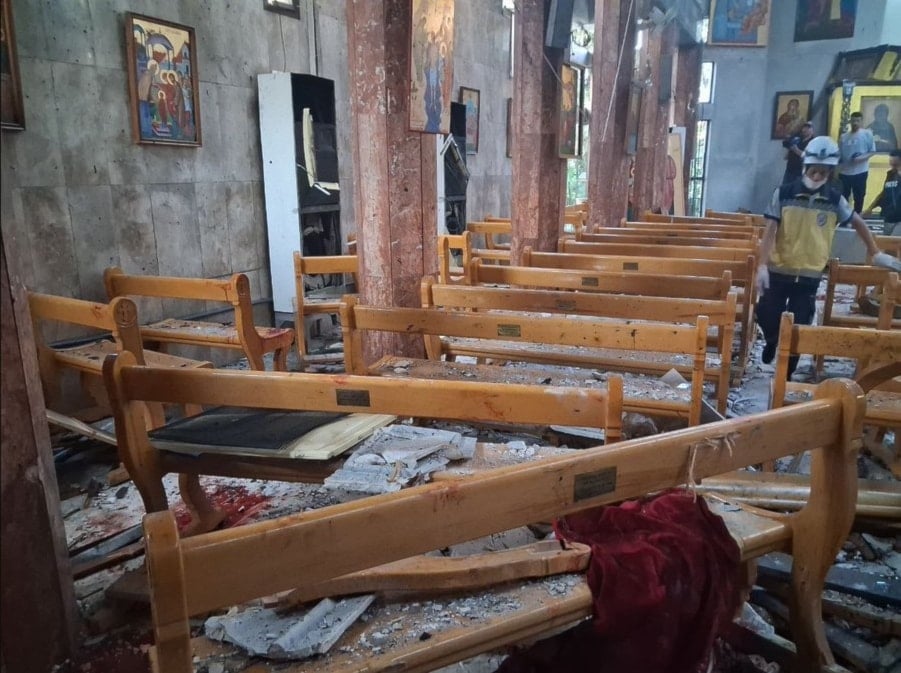ISIS claims responsibility for Damascus Church bombing
Sectarian attacks, particularly against Christians and Alawites, have surged in recent months.
-

SANA publishes initial photos of the aftermath of the suicide attack that targeted Mar Elias Church in the Douweila area of Damascus. (SANA)
ISIS on Sunday claimed responsibility for a suicide bombing that targeted the Mar Elias Church in the Duweila district of Damascus, killing at least 20 worshippers during Sunday mass. The group's statement, shared via affiliated media channels, said the attacker detonated an explosive vest inside the church while congregants were gathered in prayer.
According to eyewitnesses cited by RIA Novosti, the bombing was a deliberate attack on civilians: "A terrorist detonated an explosive device at a church in Dweila during a service. Some people were killed." Syrian state media confirmed the attack, with Syria TV reporting that the explosion occurred inside the church during the liturgy.
Photos published by SANA in the hours following the attack reveal a scene of devastation, scorched walls, shattered pews, and bloodied floors. Emergency services cordoned off the area as security forces launched an investigation into how the assailant managed to penetrate the church's defenses.
Terrorist attack targets St. Elias Church in the Duwaila area of Damascushttps://t.co/wsn7cKqEnL via @SanaAjel pic.twitter.com/WVlPyO2Xl9
— SANAEnglishOfficial (@SANAEnOfficial) June 22, 2025
The bombing comes amid heightened instability in Syria, where a fragile transitional government led by interim President Ahmed al‑Sharaa faces growing scrutiny. Although al‑Sharaa has condemned the attack and ordered an inquiry, his past leadership of Hay'at Tahrir al‑Sham (HTS), a group previously aligned with al-Qaeda, has deepened concerns about his government's commitment to protecting minority communities.
Sectarian attacks, particularly against Christians and Alawites, have surged in recent months. In March, over 1,300 civilians were killed in coordinated assaults linked to factions loosely aligned with the transitional administration. International observers have criticized the government's response as opaque and inadequate.
Read more: Islamic State eyes resurgence in Syria, Iraq, exploiting divisions
Adding to the controversy, reports have emerged of backchannel talks between al‑Sharaa's administration and Israeli officials, discussions reportedly facilitated by Gulf intermediaries and backed by US mediation. While framed as efforts to ensure regional stability, these developments have sparked backlash from both within Syria and among its traditional allies.
Meanwhile, Western governments have begun easing sanctions against Damascus. The US suspended enforcement of the Caesar Act for six months, and the EU followed suit, citing humanitarian needs. Critics argue the move could inadvertently legitimize a leadership still struggling to sever ties with extremist networks and protect its own population.

 3 Min Read
3 Min Read









